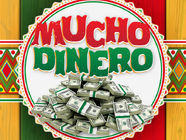I think that all tools have increased in price over the past years, and particularly so over the past 5 years. That said, the relative difference between each tool you mention has not really changed.
My skews include the large lacer, a 1.25 thompson, a couple benjamins best, a sorby and some old craftsman. The two I use the most are the Thompson, and a 1/2" Craftsman. For whatever reason, those two just feel right in my hands, and the others are all just off slightly. In addition to getting your "investment grade" tool, may I suggest a cheaper one too - for the purpose of trying different profiles and grinds. It is great to be able to compare a skew ground straight across with one curved such as a Lacer.
As for being high ticket items, they are probably lifetime tools for most of us. My skews only hit the grinder when either the edge gets a chip, or when the hollow ground gets flat due to honing. By comparison, my gouges are on the grinder several times every time they are used. So, for me, a skew will outlast a gouge, probably 3 or 4 fold.



